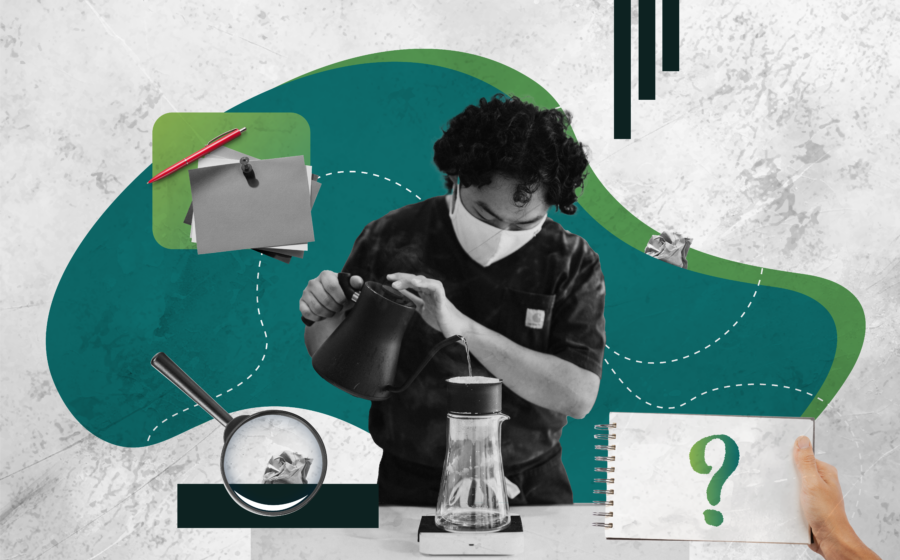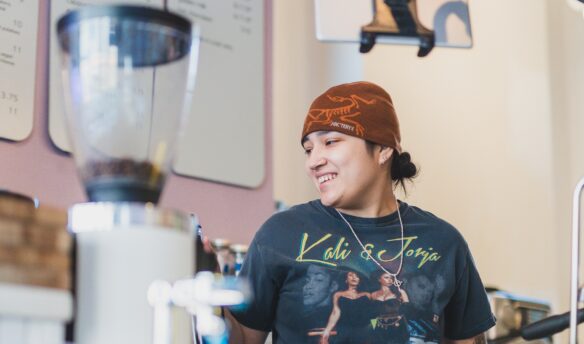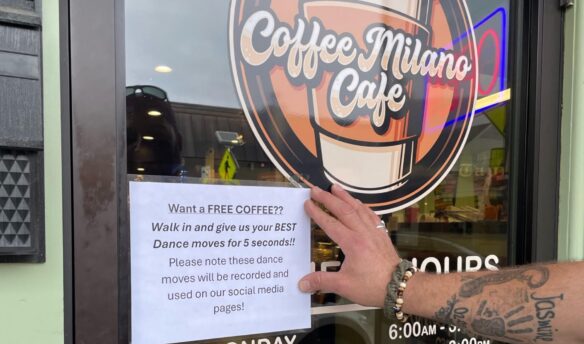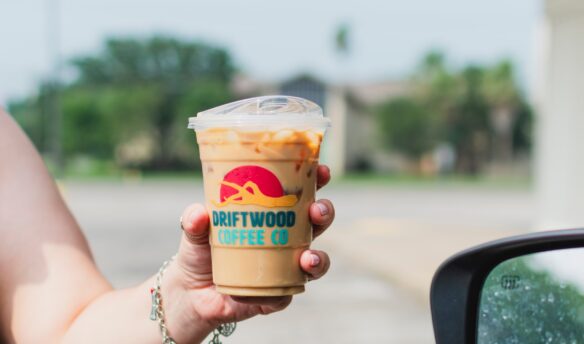This story appears in The Coffee Shop Handbook, Fresh Cup’s print resource for coffee shop leaders—get your copy here.
When I first entered the coffee world as a barista in 2014, high-quality coffee was the major differentiator for our shop. We had artisan knowledge of coffee origins and brewing methods; we offered pour-overs and refused to stock dozens of syrups; we kept up with barista competitions and industry happenings.
Today, however, great coffee and knowledgeable baristas are comparatively easy to find. The industry has entered an era of saturation, and high-quality coffee is no longer a key differentiator for most cafes. Instead, what sets individual coffee businesses apart is the quality of their customer experience.
In other words, the way your customers interact with your brand is now more important than the quality or price of your product.
Rather than centering marketing efforts on your product, then, focusing on the unique experience you offer is essential. And there’s no better way to discover what your customers love (or don’t love) about your experience than to—wait for it—ask them. The trick is knowing which questions to ask to access those deeper emotional truths.
We’ve compiled five core questions that will yield more than just surface-level answers—and will help set you up for lasting success.
Getting Set Up for Customer Research
Customer research is, at its core, talking to people and asking good questions. Pick a day or two and ask a handful of customers if they can spare four or five minutes to answer a few questions. Feel free to comp their drinks or offer gift cards as a way to show your gratitude. Make a few notes in a notepad as you go, or ask if you can record the conversations (assure them it’s only for internal learning and will never be shared outside the company).
Rather than centering marketing efforts on your product, then, focusing on the unique experience you offer is essential. And there’s no better way to discover what your customers love (or don’t love) about your experience than to—wait for it—ask them. The trick is knowing which questions to ask to access those deeper emotional truths.
Ideally, you want to quickly interview 10–20 customers at a variety of loyalty levels. Your superfans will respond differently than infrequent purchasers, and knowing the difference between their perceptions can help you try to close that gap, and turn more casual customers into dedicated regulars.
Start with a personal catch-up question or two to make them feel at ease, then give the following questions a spin:
“Was there anything about our company that really stuck out to you when you first learned about us?
This question can help you understand the first impressions you give. Do customers instantly feel welcome when they walk through your door? Does your Instagram give off a vibe that’s not true to your brand?
People remember three parts of any experience: the beginning, a “peak moment” (the climax of their experience, good or bad), and the ending. You really want to nail that first impression, and this question will give you a sense of how well you’re doing, and what you can change to improve that first encounter.
“What made you want to come back a second time?”
It’s not the first transaction that signals you’ve earned a customer, but the second. Anyone can incentivize a single visit with a good offer, but repeat business is something that’s earned—and knowing how you earn it gives you something to lean into.
This question helps you identify which aspects of your business matter so much that customers choose to keep coming back.
“Is there anything that makes you hesitate to come back, or anything that you would want to change or improve?”
No experience is flawless, and even your most regular customers likely have things about your business that bug them. Perhaps your creamer dispenser is always lukewarm, the baristas are inconsistent, or it’s unclear which parking spots belong to your cafe.
The more of these questions, hesitations, and barriers you can identify and resolve, the easier it will be to earn repeat business.
“What does buying from us actually do for you personally that doesn’t happen in other places?”
The obvious answer is, “I get a nice caffeine boost with something that tastes delicious.” When they say that, don’t respond immediately. Give them a moment to process the question and look a little deeper.
There are more specific benefits that your experience provides over other shops or e-commerce stores. Perhaps you’re faster than other cafes, and customers know they can rely on you to be quick when they’re busy. Maybe your website makes it really easy to find a coffee they’ll love.
Be patient—they’ll likely give more details if you give them the space to.
“If our company closed tomorrow, what would you miss the most?”
This question cuts right to the heart of your value proposition. It forces customers to consider what truly matters to them about your business. And their answers might surprise you.
Maybe they’ll mention that they love how your coffee is roasted locally, or the warm smile of your barista who remembers their name and order. It could be the cozy corner where they prefer to work, or the fact that you’re the only place in town that makes a proper cappuccino.
Whatever their answer, it highlights what makes your coffee experience memorable and sticky—the qualities that you should protect and nurture.
Bonus: “Where would you go for coffee instead if we closed?”
Which competitors do your customers perceive to be most closely aligned with your values, menu, and overall experience? It’s always good to keep an eye on your competition.
Putting These Insights to Work
Now that you’ve gathered these valuable insights, you don’t want them to collect dust in a notebook somewhere. Here are a few ways to make the most of what you’ve learned:
Identify Patterns
Look for common themes in the responses. If multiple customers mention the same positive (or negative) aspects, you’ve found something worth digging deeper to understand, or business adjustments to address.
Don’t shy away from criticism. If customers consistently mention areas for improvement, tackle these head-on. It shows you’re listening and committed to enhancing their experience.
Amplify Your Strengths
Once you know what customers love most about your business, find ways to emphasize and expand on these elements. If it’s your friendly staff, invest in more education, and build team morale around great service. If it’s your speed of service, establish your current practices as the bar of excellence and make sure all new hires can meet that standard.
Address Weaknesses
Don’t shy away from criticism. If customers consistently mention areas for improvement, tackle these head-on. It shows you’re listening and committed to enhancing their experience.
Refine Your Marketing
Use the language and ideas from your customers’ responses in your marketing materials. When you speak directly to what matters to them, your message becomes much more powerful.
Repeat Regularly
Local competition, menu preferences, and customer sentiments generally change over time.
You’ll carry different products, hire new employees, and add new drinks to your menu or snacks to your pastry case. Things naturally evolve, and you don’t want to be caught making important decisions based on research from five years ago. Make these conversations a regular part of your business practice, once or twice per year.
Remember, the goal isn’t just to collect data—it’s to build deeper relationships. These conversations show your customers that you value their input and are committed to serving them better. In an industry as competitive as coffee, this deep listening and engagement can set you apart—and turn casual customers into lifelong fans.















